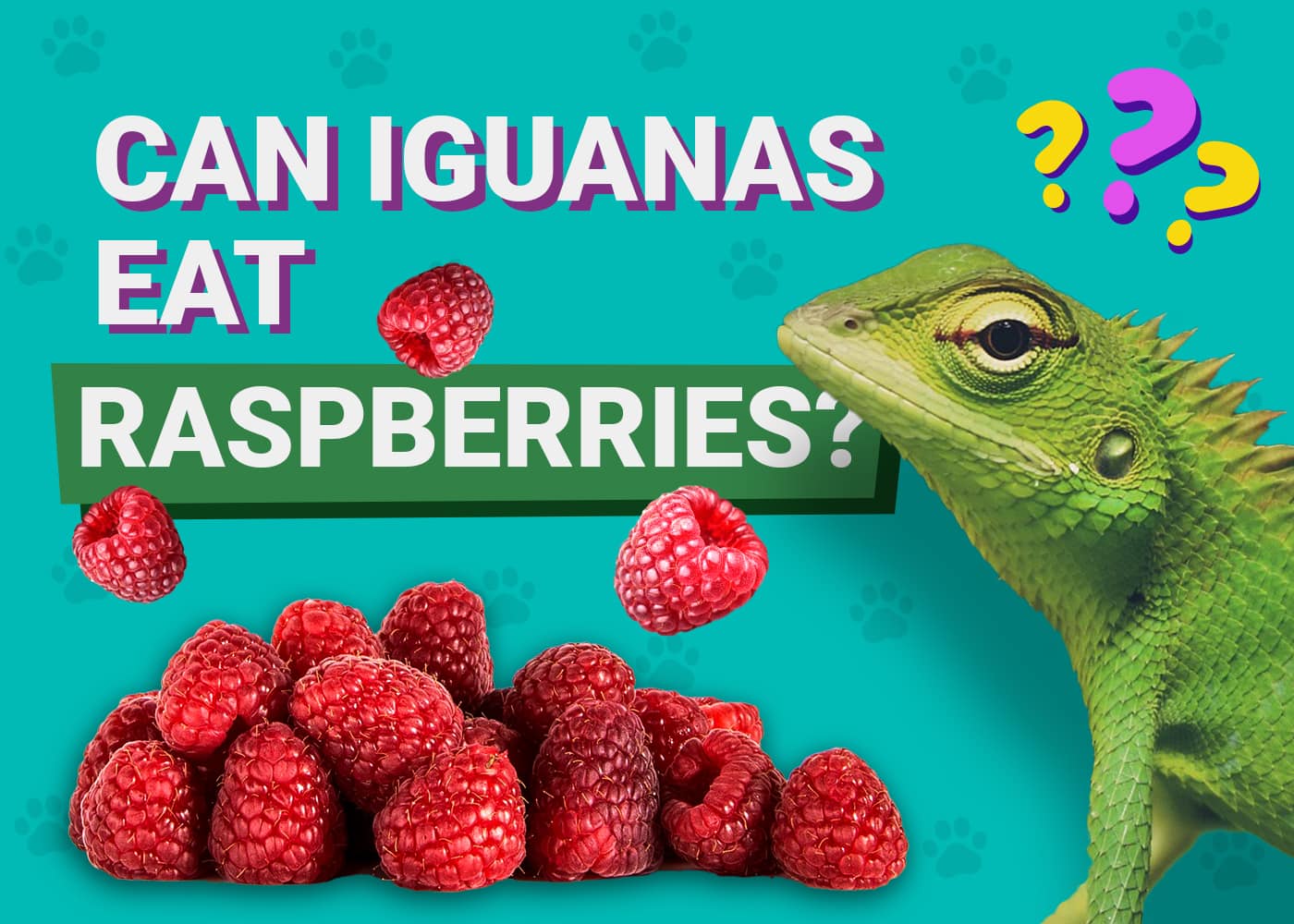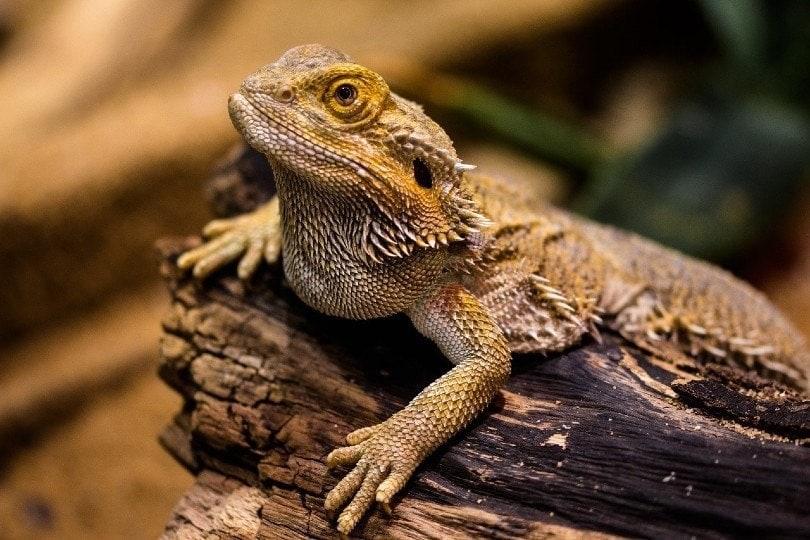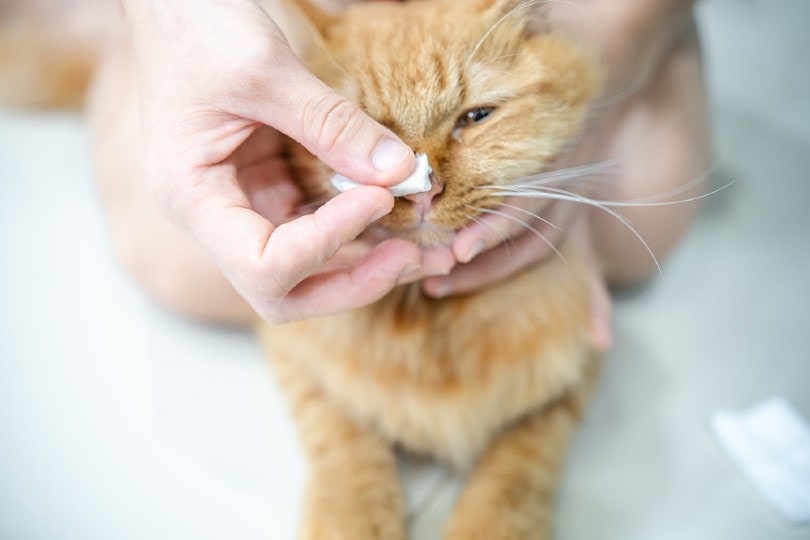VET APPROVED

The information is current and up-to-date in accordance with the latest veterinarian research.
Learn more »Iguanas are herbivorous reptiles. More specifically, they are folivores, a particular type of herbivore whose diet mainly consists of foliage (leaves). While leaves may not seem exceptionally nutritious, iguanas are hindgut fermenters, so they can get all the nutritional value of something that is usually difficult to digest!
While in their wild habitats, they mainly survive on leaves; this makes up only 95-85% of their diet. The other 5-15% is from fruit. There is a range of different fruits that can be fed safely to iguanas. The key is finding the fruits that are easily attainable for you as a reptile owner and naturally healthy for your pet. You’re here because you want to know if raspberries are one of those, right?
Iguanas can eat raspberries! However, raspberries are high in sugars and should be fed only occasionally as a treat. Raspberries can offer multiple health benefits as part of a balanced diet.

Are Raspberries Good for Iguanas?
Raspberries are a fruit that is often recommended to us by nutritionists as it is considered to give us some incredible health benefits. They are predominantly known as heart-healthy food and can help to reduce the risk of heart disease.
We humans are fundamentally different than an iguana, in more ways than one! So, are raspberries just as good for iguanas as they are for us? Let’s break raspberries down into all their components and see how they can serve an iguanas body to make sure we provide out scaled friends with the best diet possible.
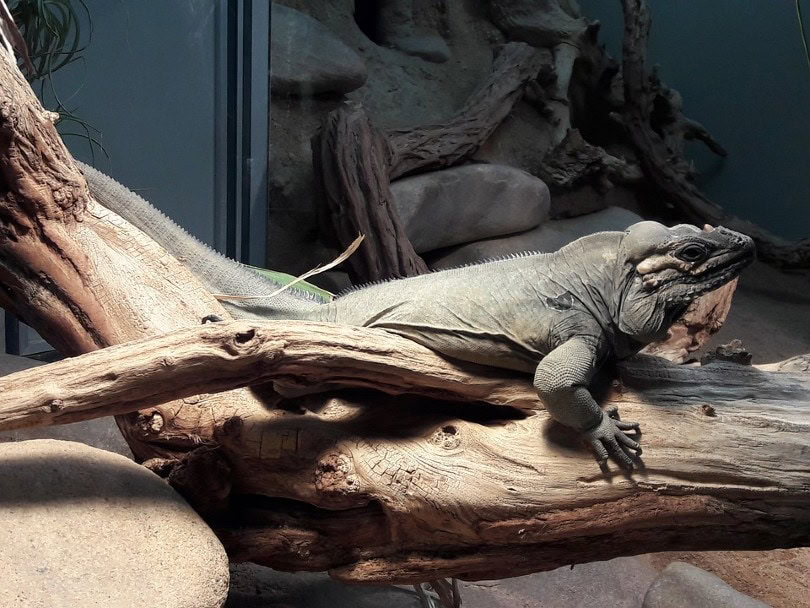
Nutritional Breakdown
| Raspberry Nutrition Per Serve (19g – 10 raspberries) | |
| Water | 16.3g |
| Calories | 9.9kcal |
| Sugar | 0.8g |
| Calcium | 0.131mg |
| Magnesium | 4.18mg |
| Phosphorus | 5.51mg |
| Potassium | 28.7mg |
Additional Vitamins & Minerals
- Zinc
- Copper
- Selenium
- Vitamin C
- Thiamin
- Riboflavin
- Betaine
- Carotene (alpha and beta)
- Vitamin E
- Vitamin K
- Vitamin B6

Health Benefits
Raspberries are hydrating and may provide vitamin C, vitamin K, and vitamin E as well as minerals like magnesium and potassium. Additionally, the sweet flavor and juicy texture of raspberries may be loved by your reptile and prove to be a real treat!

Risks
We’ve mentioned that raspberries should be fed to your iguana as a treat, not an integral part of their diet. Naturally, an iguana diet will only be 5-15% fruit, so providing a small number of raspberries relates to this. Raspberries are high in sugar, so they can disrupt your iguana’s delicate gut microbiome and cause diarrhea.
Feeding up on too much fruit such as raspberries will also mean that iguanas will eat less of the natural vegetation diet that will offer them the best nutritional value; this means they run the risk of nutritional deficiencies and being overweight.
Additionally, raspberries are a fruit that is high in oxalates. Oxalates in high amounts can be risky. Oxalates bind with calcium in the gut, reduce the absorbency of calcium in your iguana, and increase the risk of kidney stones. This means raspberries can increase the risk of calcium deficiency in iguanas, and calcium is vital for reptile bone health.
Don’t be afraid though, these risks are only present if raspberries are fed in very high amounts, the occasional treat will offer more benefits than it does risks!
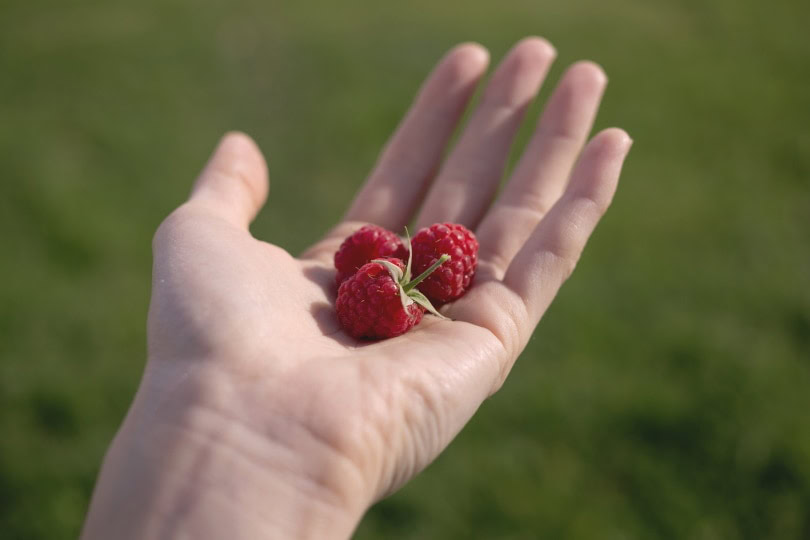

Raspberry Feeding Guide for Iguanas
Fresh
Fresh raspberries should be your first pick when shopping for raspberries for your iguana. They are often thought to be more healthy than preserved, but frozen is just as nutritious!
Instead, fresh is our favorite choice as fresh raspberries will be at their most palatable. The taste, texture, and ripeness will be at their most ideal, meaning your iguana will enjoy it the most.
When preparing fresh fruit for your iguana, you should always wash them before feeding them out. Commercially grown raspberries may have pesticide residue remaining on the surface. Even in low amounts, iguanas can be more vulnerable to the effects of these chemicals than we are. Reptiles, as ectotherms, have slower metabolisms meaning pesticides will linger in their systems a lot longer. The best you can do is feed only organic certified raspberries.
Chop all raspberries to a suitable size to avoid the risk of digestive impaction of choking occurring during feeding. A steady rule for reptile feeding is to never feed anything larger than the space between your reptile’s eyes.
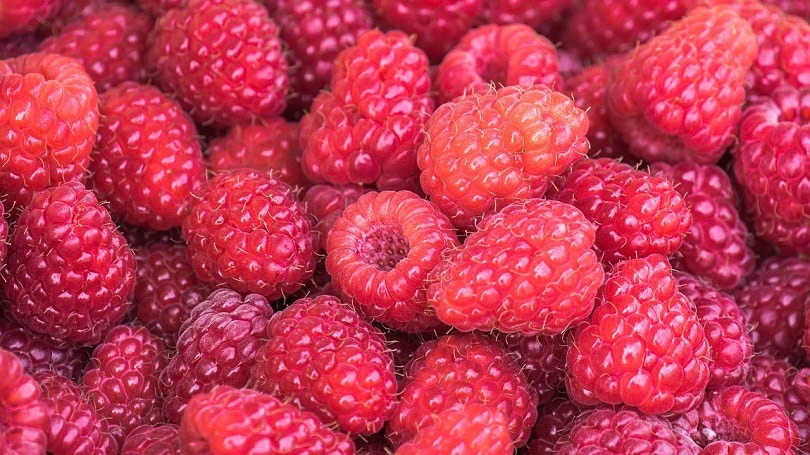
Frozen
Frozen raspberries will offer the same nutritional value to your iguana, but preparation will be different. You need to ensure that the raspberries are entirely thawed and at room temperature before feeding them.
Ectotherms like iguanas will rely on external conditions to thermoregulate their bodies. The addition of a very cold condition (eating a frozen raspberry!) will lower their body temperature quickly. It could easily affect their ability to digest their meal, increasing the risk of impaction.
Due to their slow metabolism and digestive process, food moves slowly through their digestive tract. Feeding frozen raspberries without thawing can cause temperature shock, potentially leading to digestive discomfort or slowed digestion. Always thaw frozen foods to room temperature before offering them to an iguana.
Dried
It’s best to avoid dried raspberries. The drying process strips the fruit of moisture and some of its valuable nutritional content, leaving something delicious but also very high in concentrated sugar!
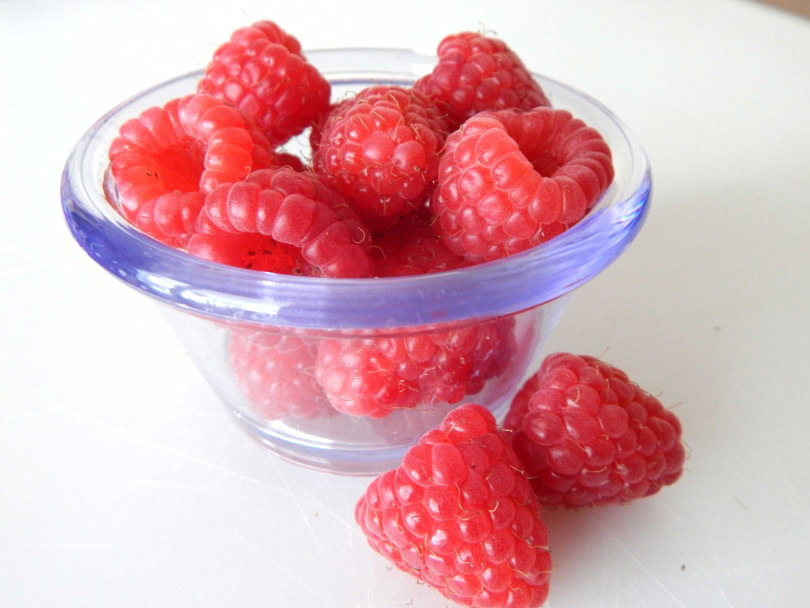

Final Thoughts
Raspberries can make a tasty and valuable treat to add to your iguana’s main diet. They are not suitable for feeding in large amounts or feeding daily but are best fed as an occasional treat.
When you purchase and prepare raspberries for your iguana, there are a few things to consider to ensure the raspberries are both palatable and safe.
See Also:
